Understanding North Carolina Property Taxes
Are you wondering how property taxes work in North Carolina? Keep reading to understand North Carolina property taxes.
Are you interested in moving to North Carolina? Residents here love the low cost of living, dynamic cities, and high quality of life that the state has to offer, making it one of the best places to live in the country.
Whether you're a first-time homebuyer in Raleigh or a longtime North Carolina resident, property taxes are one of the most significant ongoing costs of homeownership.
Understanding how the Tar Heel State's property tax system works can help you budget effectively, identify potential savings, and avoid surprises when your tax bill arrives each year.
If you live in Raleigh, this comprehensive guide will walk you through everything you need to know about North Carolina property taxes, from how they are calculated to exemptions you might qualify for.
Here is what you should know about North Carolina property taxes.
1. About the North Carolina Property Tax System
Unlike some states, North Carolina does not impose a state-level property tax. All property taxes are levied at the county and municipal levels, which means rates vary significantly depending on where you live in the state.
The North Carolina Department of Revenue does not send or collect property tax bills. For most areas, the property tax lien date is January 1st. Any person owning a property as of January 1st is liable for property taxes in the county where that property is located.
North Carolina law requires counties to revalue all real property at least once every eight years, though many counties, including Wake County, conduct revaluations more frequently (typically every four years). This ensures property values reflect current market conditions.
Since all property in the state is assessed as of January 1st each year, this means that whoever owns the property on January 1st is responsible for that year's taxes, regardless of whether the property is sold later in the year.
Special tax programs exist for agricultural, horticultural, and forestry land that allow qualifying properties to be taxed based on their current use rather than their market value.
Your total property tax rate typically combines several components:
- County tax rate: Funds county services like schools, public safety, and infrastructure
- Municipal tax rate: If you live within city limits (such as Raleigh, Cary, or Durham), you'll pay an additional municipal rate
- Special district rates: Some areas have additional taxes for fire districts, lighting districts, or other special services
In Wake County, for example, tax rates vary by municipality. Raleigh residents pay both the county rate and the city rate, while those in unincorporated areas pay only the county rate.
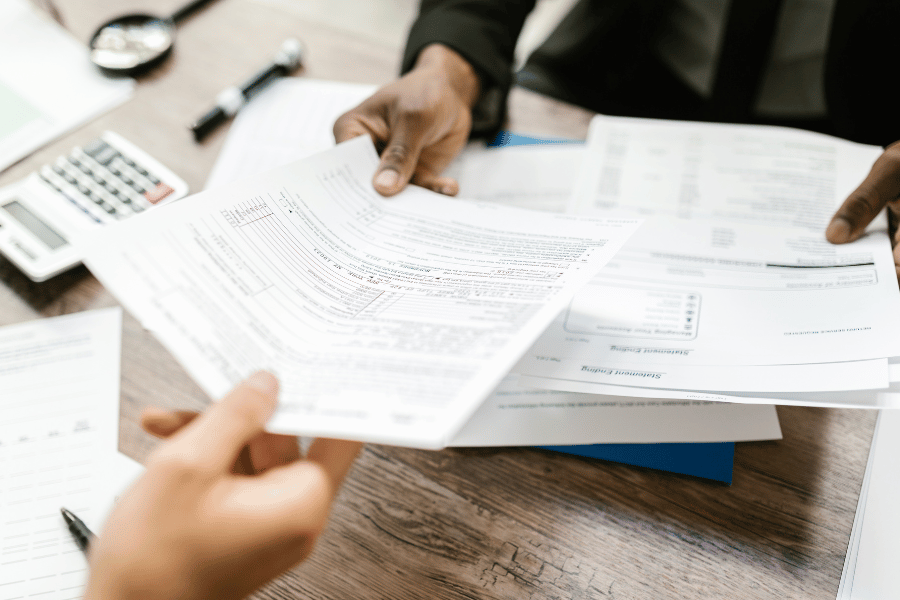
2. Understanding Your Property Tax Bill
The amount of North Carolina property tax that an owner must pay is determined by the property's assessed value and the county's tax rate. Each county does everything differently, so make sure you research your specific county to get the exact information you need to know.
North Carolina property tax bills are typically mailed in late July or August and are due September 1st. Here's what you'll find on your bill:
Property Description: Lists your property's parcel identification number, address, and legal description.
Assessed Value: Shows the total assessed value of your property, broken down by land value and building value.
Exemptions and Exclusions: Lists any exemptions you've qualified for, such as homestead exemptions or elderly/disabled exclusions.
Tax Rates: Displays the various tax rates applied to your property (county, municipal, and special districts).
Total Tax Amount: Your final tax obligation for the year.
Payment Information: Due dates, payment options, and any applicable discounts or penalties.
3. How Property Taxes are Calculated in North Carolina
The annual property tax paid by each owner is calculated using their assessed value and the local tax rate levied by the county. Exemption amounts are removed from the value before the calculation is made.
Here is the basic formula: Property Tax = Assessed Value x Tax Rate
Your county tax assessor determines your property's assessed value, which in North Carolina equals 100% of the property's true market value as of January 1st. Assessors consider factors such as:
- Recent sales of comparable properties in your area
- Property size, age, and condition
- Improvements and renovations
- Location and neighborhood characteristics
- Current real estate market trends
Once your property's assessed value is established, the county applies the local tax rate, expressed in dollars per $100 of assessed value.
.png)
4. Property Tax Exemptions and Exclusions in North Carolina
In North Carolina, there are various exemptions available for property owners that will lessen their property tax burden. To determine if you qualify for any of these exemptions, contact your local tax assessor's office or consult with the NC Department of Revenue for more information.
Keep in mind there may be other local or temporary exemptions available, so always check with authorities to get the most accurate and up-to-date information. Taking advantage of these exemptions and seeking advice is different and varies based on your specific situation.
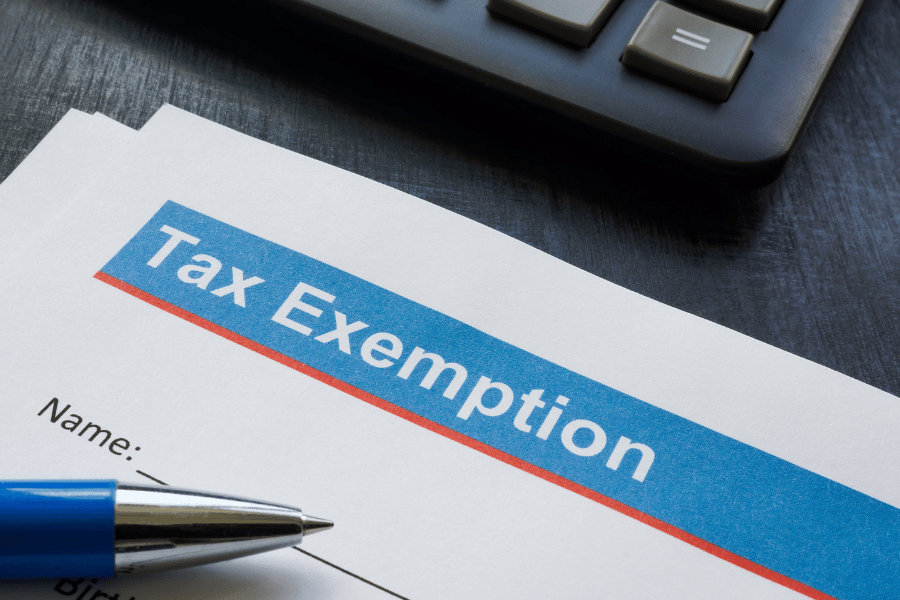
Homestead Exclusion
The Homestead Exclusion is available to qualifying homeowners and can significantly reduce your tax bill:
Eligibility Requirements:
- You must be 65 years or older, or totally and permanently disabled
- The property must be your primary residence
- You must have owned and occupied the home for at least one year before January 1
- Income limitations apply (though these thresholds are relatively generous)
Excludes $25,000 or 50% of the assessed value (whichever is greater) from property taxes. For example, if your home is assessed at $300,000, you would only pay taxes on $150,000.
Circuit Breaker Tax Deferment
The Circuit Breaker Tax Deferment program allows eligible elderly or disabled homeowners to defer a portion of their property taxes:
Eligibility Requirements:
- Must meet the same criteria as the Homestead Exclusion
- Total income must not exceed 200% of the federal poverty level
- Must have owned and occupied the home for at least five years
Defers the portion of property taxes that exceeds 4% or 5% of your annual income (depending on income level). Deferred taxes become a lien on the property, payable when the property is sold or transferred.
Disabled Veteran Exclusion
If a veteran has a disability that is 100% service-related, they may be eligible for a $45,000 exemption on their home value assessment for tax purposes. This is also based on the level of disability.
Eligibility Requirements:
- Must be a North Carolina resident and honorably discharged veteran
- Must have a 100% permanent and total service-connected disability
- The property must be your primary residence
Wildlife Conservation Land Exemption
Similar to present-use value, this program provides tax benefits for land managed for wildlife conservation purposes.
Present Use Value Assessment
This program benefits owners of agricultural, horticultural, or forestry land:
Eligibility Requirements:
- Land must be actively engaged in qualifying agricultural, horticultural, or forestry production
- Minimum acreage requirements vary by county
- Must meet income requirements from the agricultural use
Property is taxed based on its value for agricultural use rather than its development value, resulting in substantial savings for qualifying landowners.
5. Types of Property Subject to Taxation in North Carolina
There are three main elements of the property tax system in North Carolina.
Real Property
Real property includes land and anything permanently attached to it:
- Residential homes and land
- Commercial buildings and property
- Industrial facilities
- Vacant land
- Rental properties
- Condominiums and townhomes
The Machinery Act (G.S. 105-286) provides the framework for the listing, assessing, and appraising of both real and personal property. All counties are required to conduct a reappraisal at least every eight years.
Personal Property
Personal property refers to movable assets used in business operations:
- Business equipment and machinery
- Office furniture and fixtures
- Computer systems and technology
- Inventory (in some cases)
- Business vehicles and aircraft
All taxable personal property in NC is appraised at its true value in money. The two examples are inventories owned by manufacturers, retailers, wholesalers, and contractors, as well as non-business personal property.
North Carolina does NOT tax personal property owned by individuals for personal use. Your household furniture, personal vehicles registered for personal use, clothing, and personal belongings are not subject to property tax.
Motor Vehicles
North Carolina has a unique approach to motor vehicle taxation:
Motor vehicles, if registered, are assessed according to their registration renewal date. The North Carolina General Assembly passed a law to create a combined motor vehicle registration renewal and property tax collection system, so that the new law transfers the responsibility for motor vehicle tax collection from the individual counties across NC to the NCDMW.
Motor vehicles are taxed at the local rate based on where the vehicle is registered (where you live), not where it was purchased. Vehicle values are based on average trade-in values determined by a recognized pricing guide, and these values typically depreciate each year.
.png)
6. Tips for Managing Your Property Taxes
When it comes to property taxes, consider these tips so that you can pay them on time:
Budget Monthly: Rather than facing a large bill in August, set aside money each month in a dedicated savings account. Divide your annual tax bill by 12 to determine your monthly savings goal.
Consider Escrow: If you have a mortgage, you can arrange for your lender to collect property taxes as part of your monthly mortgage payment and pay them on your behalf when due.
Monitor Assessments: Review your property assessment carefully each revaluation cycle. Ensure the assessor's records accurately reflect your property's characteristics.
Apply for Exemptions Early: If you think you might qualify for an exemption, apply early. Processing can take time, and missing deadlines means waiting another year for relief.
Keep Records: Maintain documentation of home improvements, repairs, and any factors that might affect your property's value. This information is valuable during revaluations or appeals.
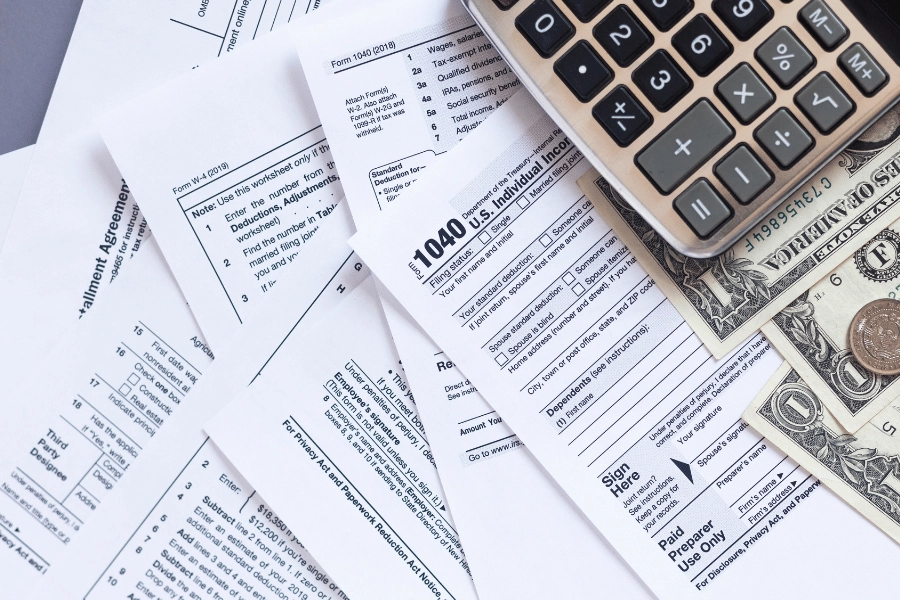
Methodology
Data was sourced from the North Carolina Department of Revenue and the North Carolina General Assembly to determine what you need to know about property taxes in North Carolina.
FAQs
How do property taxes work in North Carolina?
The property tax system in North Carolina is a locally assessed tax collected by the counties. The NC Department of Revenue does not send or collect the taxes, but they oversee to make sure each county is fair. In most areas, the tax lien date is January 1st.
What is the formula for calculating annual property taxes in North Carolina?
Calculating the taxes is determined by the local tax assessment based on the property's appraised value. Find the tax rate for the specific county, since each county has its own unique tax rate. Multiply the assessed value by the tax rate, and that will give you the annual property tax bill.
At what age do you stop paying property taxes in North Carolina?
In North Carolina, you have to be at least 65 or totally or permanently disabled to stop paying property taxes. Other exemptions are available.
Understanding North Carolina Property Taxes - Final Thoughts
Understanding property taxes is crucial for homeowners in North Carolina. Unlike some other states, property taxes in NC are managed and collected by each county individually. However, the North Carolina Department of Revenue oversees the process to ensure fairness and uniformity throughout the state.
Property taxes are a fundamental part of homeownership in North Carolina, funding essential services like public education, emergency services, road maintenance, and community programs that make the Triangle area and greater North Carolina such wonderful places to live.
While they represent a significant expense, understanding how they work empowers you to budget effectively and take advantage of available exemptions and programs.
Whether you are buying your first home, relocating to the Raleigh area, or have questions about your current property taxes, our experienced team is here to provide guidance and support.
If you are moving to Raleigh and have questions about property taxes in your specific neighborhood, contact the experts at Raleigh Realty. We are here to make informed decisions about your home.
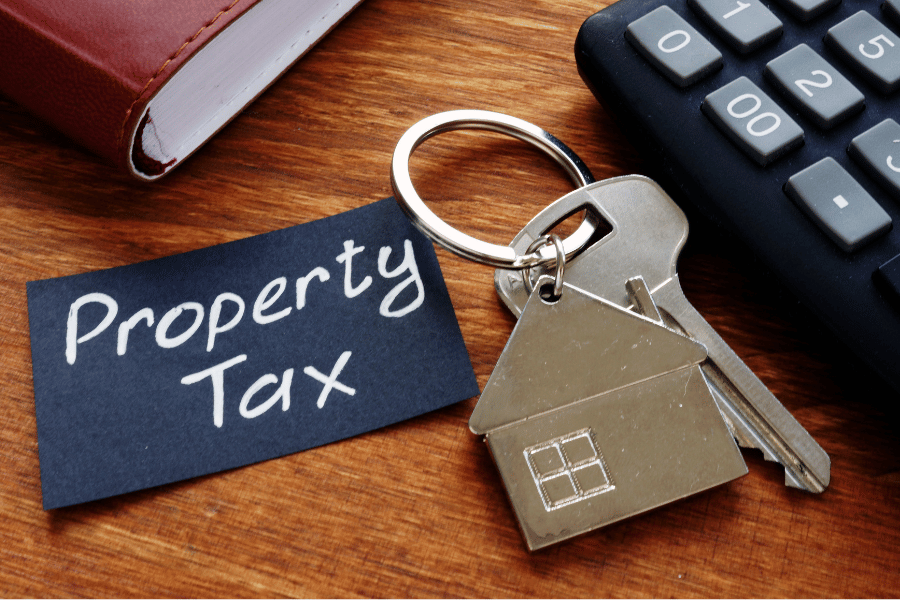
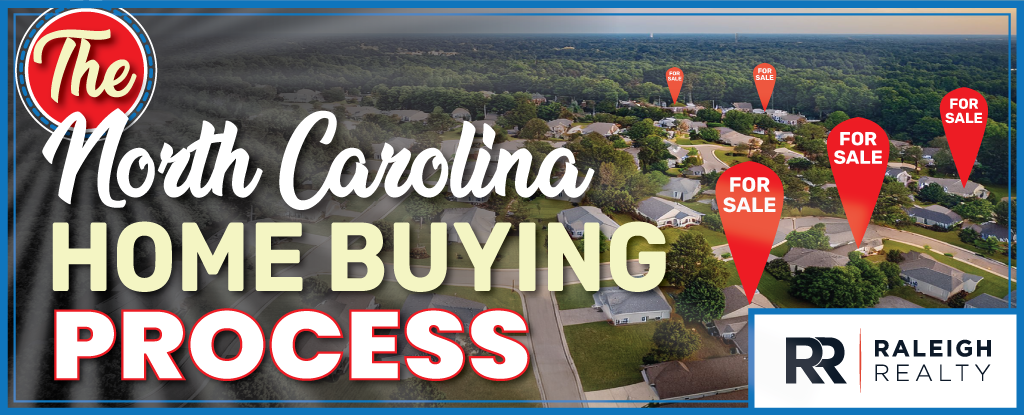

![What is the Cost of Living in North Carolina? [2025]](https://raleighrealty.com/rr-images/uploads/blogs/1748545345576-959574666-NC Cost of Living.png)
